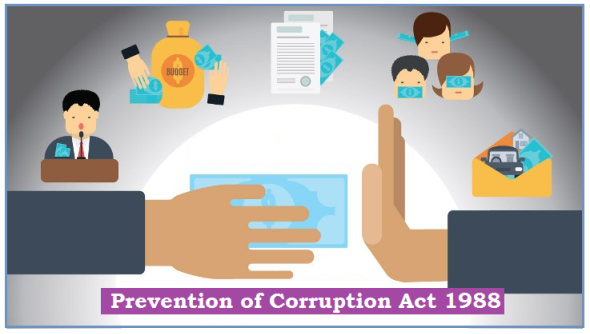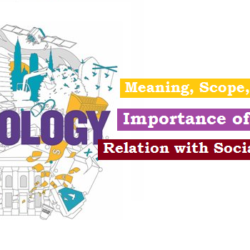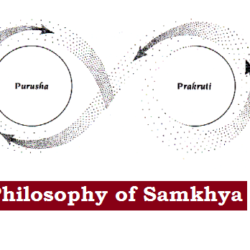
The Prevention of Corruption Act, 1988 (PC Act) was enacted to prevent corruption in Government departments and to prosecute and punish public servants involved in corrupt practices. The Prevention of Corruption Act extends to the whole of India except the State of Jammu and Kashmir and it applies also to all citizens of India outside India.
Salient Features
Judicial Structure:
- The Govt (Central and State) is empowered to appoint Special Judges to try certain punishable offences.
- The qualification for the Special Judge is that he should be or should have been a Session/ Additional/ Assistant Judge.
- The Special Judge has to hold the trial of an offence on day-to-day basis.
- Every criminal trial has to follow certain procedural rules which are provided in the Code of Criminal Procedure, 1973.
Investigation:
- Investigation shall be done by a police officer without the order of a Metropolitan Magistrate or a magistrate of first class, or make any arrest therefore without a warrant, not below the rank of:
- In case of Delhi, of an Inspector of Police.
- In metropolitan areas, of an Assistant Commissioner of Police.
- Elsewhere, of a Deputy Superintendent of Police
- If a police officer not below the rank of an Inspector of Police is authorized by the State Government in this behalf by general or special order, he may investigate such offence
Offences and Penalties:
- The offences under the Act shall be punishable
with imprisonment which shall be not less than 6 months but which may extend to 5 years and shall also be liable to fine. The offences include
- Taking gratification other than legal remuneration,
- Public servant obtaining valuable things
- For commits criminal misconduct shall be punishable with imprisonment for a term which shall be not less than one year but which may extend to 7 years and shall also be liable to fine.
Criticism of the Act
- A key problem of the 1988 Act was that the person giving the bribe was legally seen as a victim and so not held culpable or criminally liable.
- Due to strong referee institutions, the decision making has become slow, lacking innovation
- Strong institutions promote incentives for abundant cautions and status quo and promote the culture of avoidance of mistakes rather than pursuit of opportunities.
- Sec 13 (1) added provisions criminalized obtaining for any person any valuable thing or pecuniary advantage without any public interest.
- It does not differentiate between error of judgment and intentional malpractice
- The investigating agencies need not establish corruption, any inadvertent gain to a party is sufficient to prosecute the civil servants.
- Since there are other provisions of law to deal with other forms of corruption, this provision was meant to target minor forms of corruption diluting the standard of proof.
- Some allege that it is a pre-liberalization Act where private sector had little role. Today, every decision by a bureaucrat is going to benefit some private firm.
- Public servants should take decisions in public interest without ‘fear or favour’; they take decisions in fear of avoiding mistakes.
Prevention of Corruption (Amendment) Act 1988
The Amendment Act came to enhance transparency and accountability of the government and make anti-graft provisions under the law stringent. It was attempted to bring the Act in line with United Nations Convention against Corruption 2005, which was ratified by India in 2011.
Highlights of the Amendment Act
Giving Bribe made Punishable Offence:
- The Bill introduces offence of ‘giving a bribe’ as direct offence punishable with imprisonment for maximum of 7 (seven) years.
- However, a person who is compelled to give bribe who reports matter to law enforcement authorities within seven days will not be charged with this offence.
- It included Commercial Organizations giving bribe with the intention to obtain or retain business or obtain or retain an advantage in the conduct of its business, such commercial organisation shall be punishable with fine, quantum of which is not prescribed in the Amendment Act.
Definition of ‘Undue Advantage’ Enlarged:
- By virtue of such an expansive definition, even non-monetary considerations such as a better posting, post-retirement benefits, gifts and favours not estimable in money can also be covered under the ambit of undue advantage.
- Public servant for any ‘undue advantage’, either for himself or for any other person, in lieu of performance of a public duty, shall be punishable with imprisonment for a minimum term of 3 (three) years and maximum of 7 (seven) years.
Redefines Criminal Misconduct:
- The bill redefines provisions related to criminal misconduct to only cover two types of offences viz. illicit enrichment (such as amassing of assets disproportionate to one’s known income sources) and fraudulent misappropriation of property.
- Thus, the scope of criminal misconduct has been narrowed and the threshold to establish the offence of possession of disproportionate assets has been increased by the Amendment Act.
Prior Approval for Investigation:
- The Amendment Act extends this protection of requirement of prior approval to investigation prior to prosecution.
- Further, such protection is extended to former officials as well, for offences done while in office.
- The third proviso to Section 19(1) provides for a directory (not mandatory) time period of 3 (three) months within which the appropriate government must convey the decision on such sanction.
- Such approval will be not necessary in cases that involve arrest of person on spot on charge of taking a bribe.
Trial Time limit:
- The Amendment Act now prescribes that the Special Judge shall endeavour to complete the trial within 2 years.
- This period can be extended by 6 months at a time and up to a maximum of 4 years in aggregate subject to proper reasons for the same being recorded.
Penalties for offences:
- Punishment has been increased from a minimum imprisonment term of 6 months to 3 years, and from a maximum of 5 years to 7 years, with or without fine.
- It also introduces powers and procedures for attachment and forfeiture of property of public servants procured by means of an offence.
Corruption Perception Index 2018
| 1. The Corruption Perceptions Index (CPI) is an index published annually by Transparency International since 1995 which ranks countries “by their perceived levels of public sector corruption, as determined by expert assessments and opinion surveys. 2. The CPI generally defines corruption as “the misuse of public power for private benefit”. 3. Denmark is the least corrupt country while Somalia is the highest corrupt country out of 180 countries. 4. India was ranked 78 with that of Ghana, Kuwait, Turkey, etc. 5. Least Corrupt Nations: Denmark, New Zealand, Finland, Singapore, Sweden, Switzerland 6. Highest Corrupt Nations: Somalia, Syria, South Sudan, Yemen, North Korea |

 Home
Home Syllabus
Syllabus Contact Us
Contact Us








